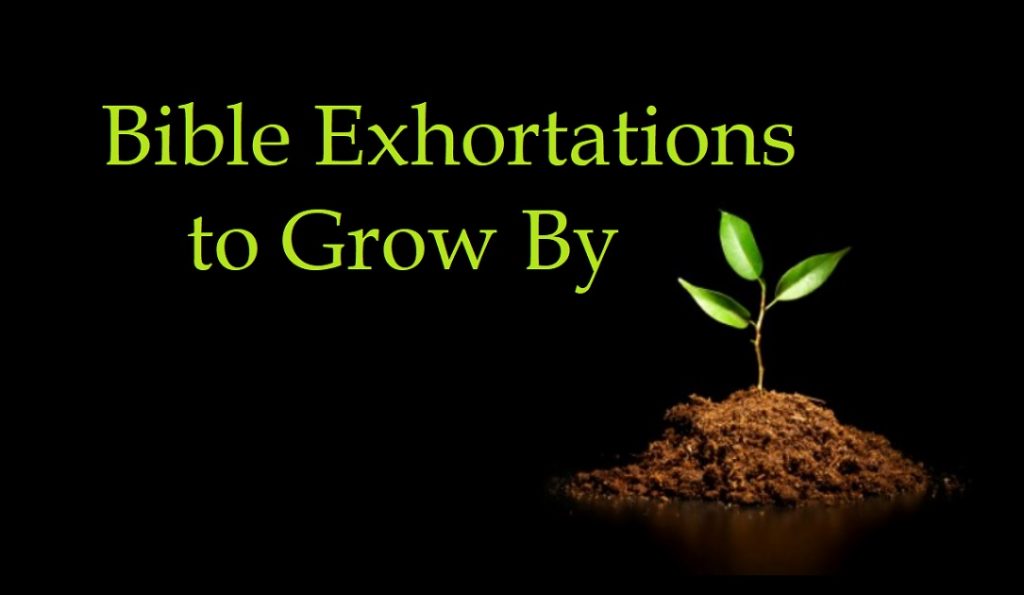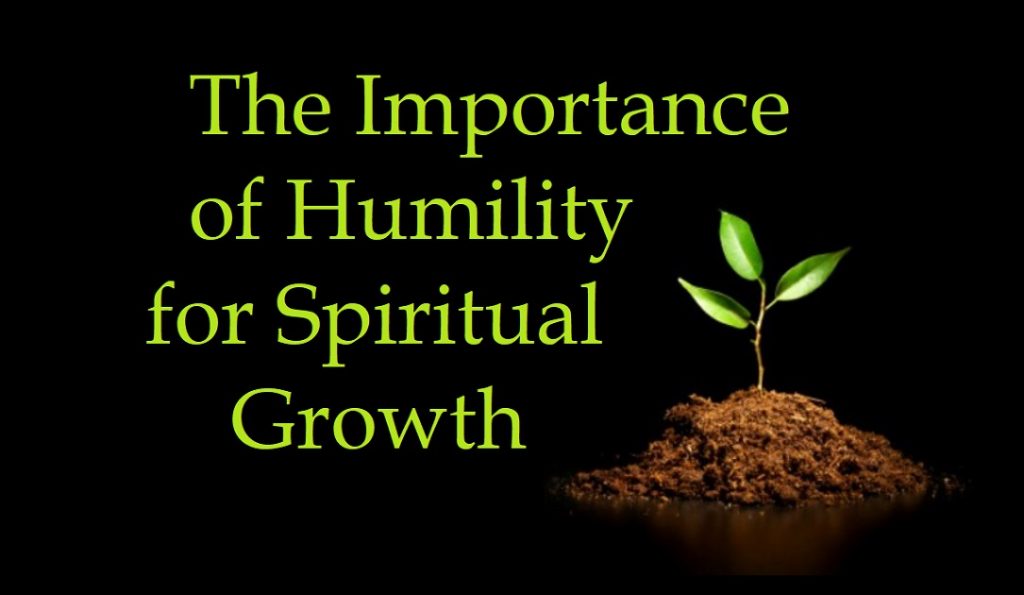“Go therefore and make disciples of all the nations…teaching them to observe all that I commanded you; and lo, I am with you always, even to the end of the age” (Matthew 28:19-20, NASB).
——————–
Contents:
1) A Clear View of Him Who Is Invisible (Jason Hardin)
2) What Are the “Husks” of Luke 15:16? (Tom Edwards)
3) Comparing the Passover With Jesus, the Christian’s Passover (video sermon, Tom Edwards)
4) News & Notes
——————–

-1-
A Clear View of Him Who Is Invisible
Jason Hardin
When we live with full eyes and empty hearts, assurance runs low and conviction wears thin. It’s hard to hope from an empty heart.
When we simply go with the flow of the world — walking and talking and acting and feeling by sight — there will always be plenty to keep our eyes full, but it’s hard to build conviction for things that are never granted my undivided attention. So prayer takes a backseat to the next Netflix episode, Bible reading gets pushed to the back burner of tomorrow, I’ll find the margin to worship on the weekend (as long as my eyes aren’t too full of other, more pressing things)… and I wonder in those dark nights of the soul why I’m struggling to hope with assurance and trust with conviction.
Hebrews 11 reminds us in the form of some powerful examples to look up from the cares and riches and pleasures of life to what cannot be seen with our physical eyes. Consider:
“Abraham obeyed when he was called to go out to a place that he was to receive as an inheritance. And he went out, not knowing where he was going. By faith he went to live in the land of promise, as in a foreign land, living in tents with Isaac and Jacob, heirs with him of the same promise” (11:8-9).
Why? Why do such a thing? “For he was looking forward to the city that has foundations, whose designer and builder is God” (11:10).
Example after example is offered in Hebrews 11 of men and women who hoped with assurance and trusted with conviction. They lived by and died with faith in God’s promises, “having seen them and greeted them from afar” (11:13).
“By faith Joseph, at the end of his life, made mention of the exodus of the Israelites and gave directions concerning his bones” (11:22). Joseph could “see” something that wouldn’t happen in space and time for centuries.
“By faith Moses, when he was grown up, refused to be called the son of Pharaoh’s daughter, choosing rather to be mistreated with the people of God than to enjoy the fleeting pleasures of sin. He considered the reproach of Christ greater wealth than the treasures of Egypt, for he was looking to the reward” (11:24-26).
“He was looking.” In an era where most eyes were full of the gold and glitter of the Pharaohs, Moses lifted his eyes from the fleeting to focus on the eternal. And what came as a result? His heart wasn’t empty. His hope was sure. His conviction was strong. By faith, he was equipped to endure “as seeing him who is invisible” (11:27).
A clear view of him who is invisible. Think about that today. What could possibly be worth more?
— Via Articles from the Knollwood church of Christ, March 2021
——————–

-2-
What are the “Husks” in Luke 15:16?
Tom Edwards
In the parable of the prodigal son, this younger son took his share of the estate and went to a distant country. There he lived a wild, riotous life of debauchery and excess, thus wasting all he had to live on, and then longing for even the “husks” (KJV) that the unclean swine were feeding upon.
In thinking of “husk,” one might mistakenly visualize the leafy outer covering of an ear of corn — for that is what the English word especially means. But it also denotes, “the dry external covering of certain fruits or seeds…” (Random House Webster’s College Dictionary).
The Greek word for “husks” in that verse is “keration” (ker-at’-ee-on), which is defined as “the pod of the carob tree, or Ceratonia siliqua of Linnaeus [which is the scientific name of the carob tree, given by Carl Linnaeus, 1707-1778], a common tree in the East and the south of Europe, growing to a considerable size [40’ to 50’ in height], and producing long slender pods, with a pulp of sweetish taste, and several brown shining seeds like beans, sometimes eaten by the poorer people in Syria and Palestine, and commonly used for fattening swine, Luke 15:16″ (Mounce’s Concise Greek-English Dictionary of the New Testament, emphasis mine).
In looking this up in 12 sources,* consisting of lexicons, Bible Dictionaries, and a Bible Encyclopedia, they all refer to the “husks” of Luke 15:16 as being the pods of the carob tree.
The English word “carob” is defined as: “1. a Mediterranean tree, Ceratonia siliqua, of the legume family, bearing long leathery pods containing hard seeds and sweet edible pulp. 2. the pod of this tree. 3. the pulp of the pods, often ground into a powder and used esp. as a substitute for chocolate” (Random House Webster’s College Dictionary, emphasis mine).
Perhaps you have had carob before, which is sold in various forms, such as powder, chips, syrup, etc. It has a nutty flavor and not the same taste as chocolate, but is a healthier alternative and naturally sweet, while chocolate from cocoa beans is naturally bitter. So, it would be better to appreciate carob for how it is — rather than comparing the two and being disappointed that it doesn’t have the chocolate flavor you are familiar with.
Looking up Luke 15:16 in 70 different Bibles, 25 of them translate “keration” as “pods,” 20 as “husks,” 10 as “carob pods,” and also as “the food the pigs were eating” (4), “what the pigs were eating” (3), “slop” (2), “what the pigs ate” (1), “bean pods” (1), “the food the pigs ate” (1), “pigs’ food” (1). And one translation must have been thinking more of the English word “husks,” rather than the meaning of the Greek word, when rendering it as “the outside part of the ears of the corn” (1), and another as “corn-cobs in the pig slop” (1).
But even if one did not know what these “husks” or pods are, it would not detract from the main idea of the passage in seeing how pathetic this person’s life had become. For feeding the swine, which was an “unclean” animal to the Jew at that time (Deut. 14:8), indicates he was having to stoop mighty low. For “This was, to the Jew, the bottom of degradation’s pit. They so abhorred swine that they refused to name them. They spoke of a pig as . . . ‘the other thing'” (Fourfold Gospel, McGarvey/Pendleton). And from Vincent’s Word Studies, feeding swine was “An ignominious occupation, especially in Jewish eyes. The keeping of swine was prohibited to Israelites under a curse.”
So even if one wrongly assumed that the prodigal was so hungry that he longed to eat corn husks (which are not for human consumption) that would not eclipse the main point of the parable.
For that prodigal is representing any sinner, and his father is representing God. So what we see is that regardless of how low a person has sunk into sin, there is a loving God in heaven who will forgive and joyfully accept any lost soul, when that sinner repents and turns to the Lord by meeting His conditions for pardon.
And those conditions involve believing in Jesus (John 8:24) with a faith that comes from the gospel (Rom. 10:17), repenting of sins (Acts 17:30; for all have sinned – Rom. 3:23), confessing faith in Christ (Rom. 10:9-10; Acts 8:36-38), and being baptized in water so that sins will be forgiven (Acts 2:38; 22:16). Salvation will then be obtained (Mark 16:16; 1 Pet. 3:21), and one will have a new life in Christ (Rom. 6:3-4; Gal. 3:26-27) as a new creature (2 Cor. 5:17).
There is no greater need one could have than to be forgiven of sin. So if you have not yet become a Christian, why not do so this very day? It will make God glad — and all the angels in heaven will rejoice! (cf. Luke 15:10).
References:
* E.W. Bullinger’s Critical Lexicon and Concordance to the English and Greek New Testament; Fausset’s Bible Dictionary; Hasting’s Dictionary of the Bible; International Standard Bible Encyclopedia; Moulton and Milligan’s Vocabulary of the Greek New Testament; New American Standard Exhaustive Concordance with Hebrew-Aramaic and Greek Dictionaries; People’s Dictionary of the Bible; Smith’s Bible Dictionary; James Strong’s Concordance with Hebrew and Greek Lexicon; W.E. Vine’s New Testament Words; and Thayer’s Greek-English Lexicon of New Testament Words (All refer to the “husks” of Luke 15:16 as being the pods of the carob tree.)
——————–
-3-
Comparing the Passover With Jesus, the Christian’s Passover
Tom Edwards
To play the video sermon with the above title, just click on the following link while on the Internet:
https://thomastedwards.com/wordpress/Passover.mp4
——————–
-4-
News & Notes
Folks to keep in prayer:
Our condolences go out to all the family and friends of Judy Daugherty (Jim Lively’s sister) who passed away Friday. The following will all take place at the Hardage-Giddens, Riverside Memorial Park & Funeral Home (7242 Normandy Blvd) in Jacksonville on July 2: visitation: 1 p.m., funeral service: 2 p.m., and graveside service: 3 p.m.
Rex Hadley was in the hospital last week for mainly his heart and kidneys. The procedure went well in receiving a pacemaker, and he is now in rehab.
Jim Lively had fallen three times recently in one week, which resulted in the sloughing off of more skin on his arm.
Danielle Bartlett has a blockage in her kidney, which her doctors believe has been causing her recent problems. She is not worried, since she has had this before, but does solicit the prayers of others.
Bennie Medlock has cataracts and glaucoma, and will soon be receiving lens implants.
Also for prayer: Rick Cuthbertson (cancer), Nell Teague (cancer), and Deborah Medlock (soon to have a device implanted to eliminate pain); and our shut-ins: A.J. & Pat Joyner, Jim Lively, and Shirley Davis
——————–
The Steps That Lead to Eternal Salvation
1) Hear the gospel — for that is how faith comes (Rom. 10:17; John 20:30-31).
2) Believe in the deity of Jesus Christ (John 8:24; John 3:18).
3) Repent of sins. For every accountable person has sinned (Romans 3:23; Romans 3:10), which causes one to be spiritually dead (Ephesians 2:1) and separated from God (Isaiah 59:1-2; Romans 6:23). Therefore, repentance of sin is necessary (Luke 13:5; Acts 17:30). For whether the sin seems great or small, there will still be the same penalty for either (Matt. 12:36-37; 2 Cor. 5:10) — and even for a lie (Rev. 21:8).
4) Confess faith in Christ (Rom. 10:9-10; Acts 8:36-38).
5) Be baptized in water for the remission of sins (Mark 16:16; Acts 2:38; 22:16; 1 Pet. 3:21). This is the final step that puts one into Christ (Gal. 3:26-27). For from that baptism, one is then raised as a new creature (2 Cor. 5:17), having all sins forgiven and beginning a new life as a Christian (Rom. 6:3-4). For the one being baptized does so “through faith in the working of God” (Col. 2:12). In other words, believing that God will keep His word and forgive after one submits to these necessary steps. And now as a Christian, we then need to…
6) Continue in the faith by living for the Lord; for, if not, salvation can be lost (Matt. 24:13; Heb. 10:36-39; Rev. 2:10; 2 Pet. 2:20-22).
——————–
Tebeau Street
CHURCH OF CHRIST
1402 Tebeau Street, Waycross, GA 31501
We are currently meeting for only our Sunday 10 a.m. worship service each week, due to the coronavirus situation.
evangelist/editor: Tom Edwards (912) 281-9917
Tom@ThomasTEdwards.com
https://thomastedwards.com/go/all.htm/ (This link is for the older version of the Gospel Observer website, but with bulletins going back to March 4, 1990.)







